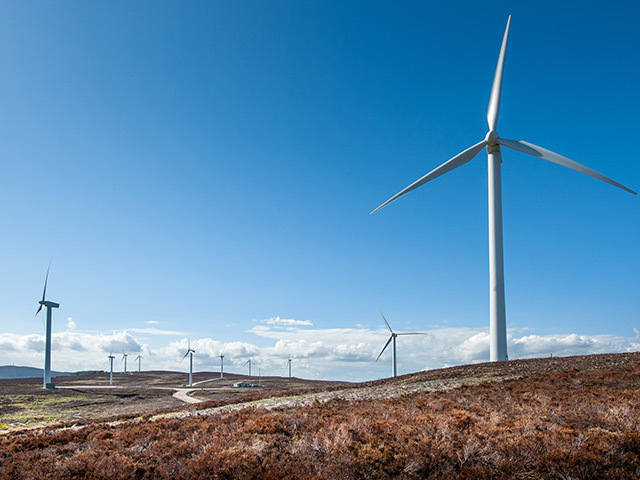
Choosing between growth and tackling climate change is a “false dilemma” as the two can be achieved together, a global commission has said.
Innovative technology and new investment in cities, energy and agriculture is giving all countries opportunities for economic growth and cutting emissions, according to a report from the Global Commission on the Economy and Climate.
An estimated $90trillion (£55trillion) will be invested in the world’s cities, agriculture and energy over the next 15 years.
Investing the money in the right way will produce opportunities to save hundreds of billions of pounds in costs, feed more people and improve health and productivity – as well as tackling climate change, the report said.
It sets out 10 measures countries need to take, from stopping deforestation of natural forests by 2030 to tripling investment in clean energy research and development and accelerating the shift away from coal-fired power stations.
Implementing the measures in full could achieve up to 90% of the emissions reductions needed by 2030 to avoid dangerous climate change, the study said.
The year-long study was conducted by leading research institutes from China, the US, Brazil, India, Europe, Korea and Africa, advised by a panel of economists chaired by Lord Stern, who wrote a key report on economics and climate in 2006.
The new study found that building better connected, more compact cities with effective public transport could save £1.9trillion in investment costs over the next 15 years, improve economic performance and quality of life and cut emissions.
Restoring 12% of the world’s degraded land could feed an extra other 200 million people, raise farming incomes by £25billion a year and cut emissions from deforestation.
Over half the new electricity generation over the next 15 years is likely to be in renewables, as the costs of solar and wind power plummets, while new financial instruments could cut capital costs for clean energy by 20%.
And phasing out the £370 billion a year spent subsidising fossil fuels – compared to just £62 billion which goes on renewable energy – will improve energy efficiency and free up funds for better ways of reducing poverty, the report said.
It also said that tripling research and development in low-carbon technologies to at least 0.1% of economic output (GDP) could drive a new wave of innovation which would boost growth.
The report acknowledges that not all climate policies are “win-win”, as while more jobs and larger markets will be created, some jobs will be lost, particularly in high-carbon sectors, and it called for governments to manage the transition.
But it points to the benefits of switching away from polluting fossil fuels, such as improving health.
Estimates for the commission suggests the health and mortality costs of air pollution in the top 15 greenhouse gas emitting countries averages 4.4% of GDP. In China the figures is above 10% of the country’s economic output.
Former Mexican president and chairman of the commission Felipe Calderon said: “The New Climate Economy report refutes the idea that we must choose between fighting climate change or growing the world’s economy. That is a false dilemma.
“Today’s report details compelling evidence on how technological change is driving new opportunities to improve growth, create jobs, boost company profits and spur economic development.
“The report sends a clear message to government and private sector leaders: we can improve the economy and tackle climate change at the same time.”
The study is being launched ahead of a UN summit in New York next week, which aims to drive action on climate change in the run up to international talks in Paris next year where it is hoped a new global climate treaty can be agreed.
The report calls for a strong international agreement on climate change as part of the measures needed to deliver emissions reductions and economic growth.
The New Climate Economy project’s global programme director Jeremy Oppenheim said an agreement was needed to “supercharge” climate action, some of which was already happening.
“An international agreement would make a difference, because we don’t have 50 years to play with. The next 15 years are critical.”
He said a deal would send a strong signal to investors that the future was low carbon, and give policy-makers the strength to argue for domestic action if the rest of the world was taking steps to cut emissions.
Lord Stern, co-chairman of the commission, added: “The decisions we make now will determine the future of our economy and our climate.
“If we choose low-carbon investment we can generate strong, high-quality growth – not just in the future but now. But if we continue down the high carbon route, climate change will bring severe risks to long-term prosperity.”
Recommended for you
